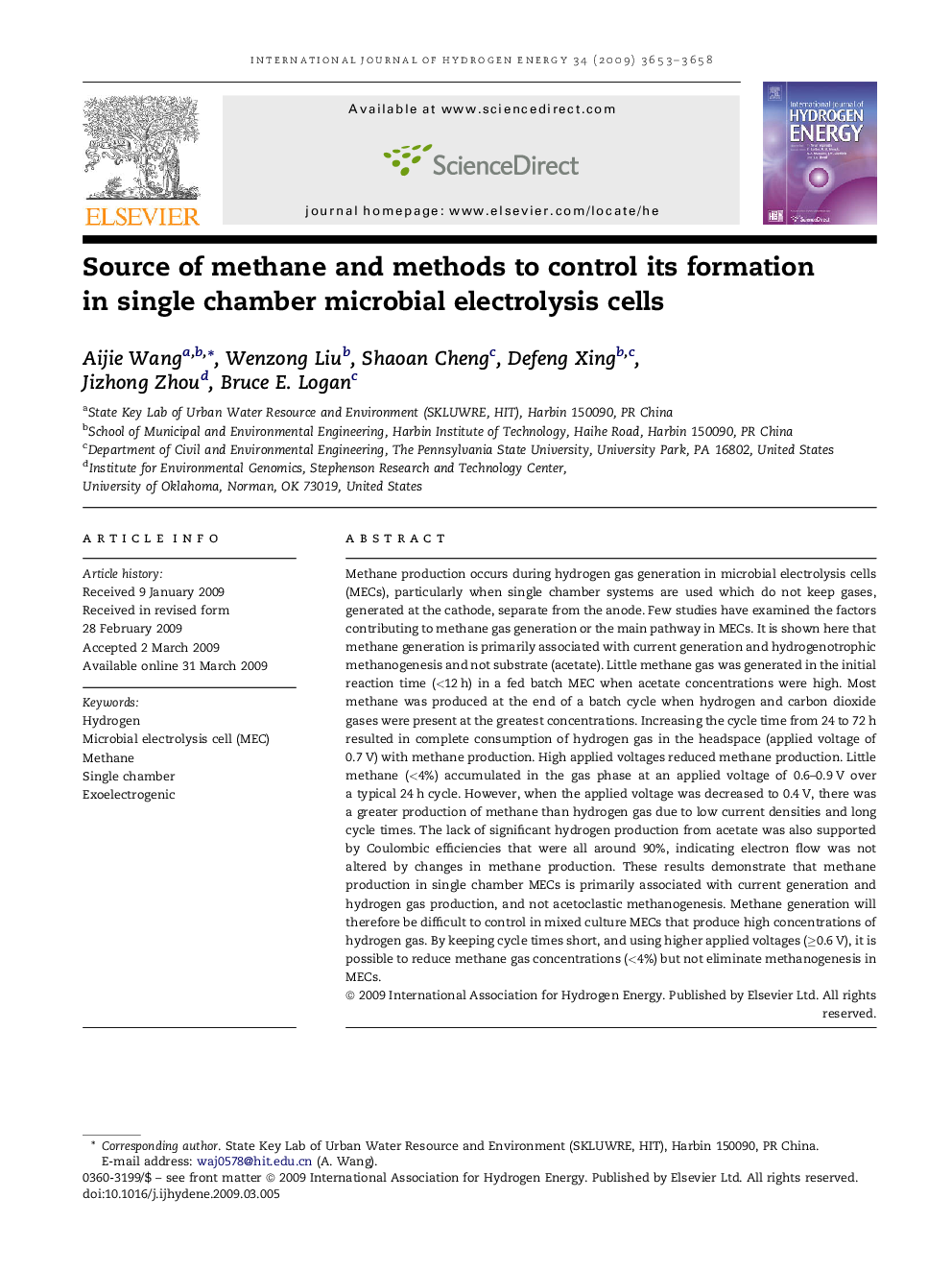| Article ID | Journal | Published Year | Pages | File Type |
|---|---|---|---|---|
| 1278995 | International Journal of Hydrogen Energy | 2009 | 6 Pages |
Methane production occurs during hydrogen gas generation in microbial electrolysis cells (MECs), particularly when single chamber systems are used which do not keep gases, generated at the cathode, separate from the anode. Few studies have examined the factors contributing to methane gas generation or the main pathway in MECs. It is shown here that methane generation is primarily associated with current generation and hydrogenotrophic methanogenesis and not substrate (acetate). Little methane gas was generated in the initial reaction time (<12 h) in a fed batch MEC when acetate concentrations were high. Most methane was produced at the end of a batch cycle when hydrogen and carbon dioxide gases were present at the greatest concentrations. Increasing the cycle time from 24 to 72 h resulted in complete consumption of hydrogen gas in the headspace (applied voltage of 0.7 V) with methane production. High applied voltages reduced methane production. Little methane (<4%) accumulated in the gas phase at an applied voltage of 0.6–0.9 V over a typical 24 h cycle. However, when the applied voltage was decreased to 0.4 V, there was a greater production of methane than hydrogen gas due to low current densities and long cycle times. The lack of significant hydrogen production from acetate was also supported by Coulombic efficiencies that were all around 90%, indicating electron flow was not altered by changes in methane production. These results demonstrate that methane production in single chamber MECs is primarily associated with current generation and hydrogen gas production, and not acetoclastic methanogenesis. Methane generation will therefore be difficult to control in mixed culture MECs that produce high concentrations of hydrogen gas. By keeping cycle times short, and using higher applied voltages (≥0.6 V), it is possible to reduce methane gas concentrations (<4%) but not eliminate methanogenesis in MECs.
